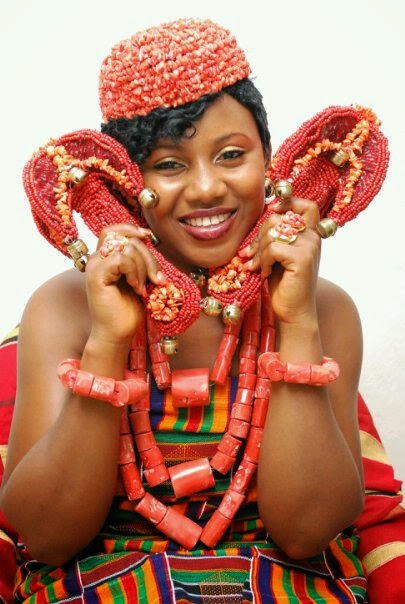The Annang is a cultural and ethnic group that lives in the
Coastal Southeast Nigeria. Annang society is patriarchal. Individuals locate
their place in the social world from the Idip, literally translated as, womb.
Thus a brother/sister from the same Idip means that they can trace their origin
to the same mother or father. Since polygamy is practised in the society, those
who can so trace their ancestry to the same parents form Ufok (literally a
house or compound). Several ufoks make up Ekpuks or extended family and several
Ekpuks (extended families) make up "Idung" (meaning village) and
several villages make up the "abie" or clan.
Leadership at the family, lineage, village, or clan level
remains the prerogative of the men, and a lineage tie extends to women even
after marriage. There are many societies and associations (Urim) for men and
women which are very important in traditional village life. Individuals are
measured by both the number and types of memberships in Urim and by the
achievements of one or more Urims. Governance is done by elderly males who act
as the legislative arm called Afe Isong, directed by the Obong or Abong Ichong
(Village Chief and Clan Chief) who is the head and the chief executive but
without the authority beyond what the Afe Ichong gives. A chief can be
appointed by the Afe or can be an inherited office. The strength of any
individual, family (or group for that matter) is typically based upon a
consensus of the village or clan through this complex social system. In all
this, Annang women are not completely subordinate to men. Instead Annang women
are partners and leaders in many aspects of Annang tradition, including serving
as female chief priests "Abia Idiong" in the Idiong cult or as
healers in the healing cults. The first-born female known as Adiaha is
important and commands respect in the family and lineage. Some traditions hold
that a woman's first birth should take place in her mother’s compound. Women
organizations such as "abi-de" and "Nyaama", and
"Isong Iban" play important roles in giving the women voice and
status in society. There are no traditional or cultural barriers that prevent
women from attaining high offices or positions. Indeed, traditionally Annang
women have a great deal of economic independence from men. The society was
semi-matriarchal before colonialism. Children bore the names of their mothers
and such common names as Essien, Essiet, Ukpong and Umo were female names and
became androgenized when the missionaries saw matriarchy as anti-Christian
.(Ette,2009). Annangs value the ability to speak well and oratory ability using
proverbs is highly desirable, especially among the leaders.

















